10 Natural Tips and Tricks on How to Get Rid of Mosquitoes at Home
The monsoon season in tropical countries often brings with it the persistent hum of mosquitoes, disrupting peaceful nights and posing health risks. While conventional solutions involve chemical-laden insect repellents, coils, and liquids, the potential harm they can cause to health prompts many to seek natural alternatives.
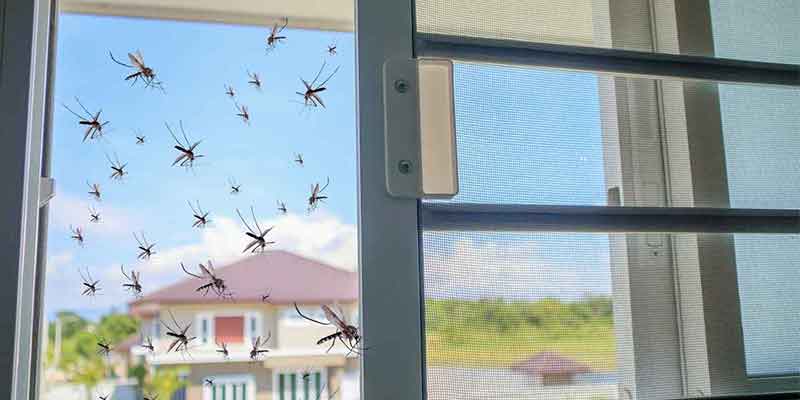
In this comprehensive guide, we delve into 10 effective and natural tips and tricks on how to get rid of mosquitoes at home during the monsoon season. From essential oils and DIY repellents to strategic plant choices and effective cleaning practices, learn how to create a comfortable and insect-free living space. Say goodbye to buzzing nuisances with these simple, eco-friendly solutions.
[ez-toc]
What kills mosquitoes: home remedies
The basic concept behind “what kills mosquitoes the best naturally” is to use natural ingredients to repel or kill mosquitoes without the use of harmful chemicals. Some of the most effective home remedies include using garlic spray, camphor, mosquito traps, and mosquito-repellent herbs.
These remedies can help repel or kill mosquitoes and other insects. Additionally, eliminating standing water, which is where mosquitoes lay their eggs, can help prevent mosquito infestations. It is important to note that these remedies may only repel mosquitoes and not necessarily kill them.
I. Camphor: A Traditional Mosquito Repellent

Overview of Camphor's Effectiveness
Camphor, an age-old remedy, is renowned for its pungent smell that overwhelms mosquitoes, making it an efficient and natural mosquito repellent. Two primary methods of using camphor include lighting it in closed spaces or using camphor tablets in water bowls.
The former involves shutting all doors and lighting camphor, noticing a mosquito-free environment after approximately 30 minutes. The latter method, using camphor tablets in a bowl of water, is a safer option for households with children and pets.
For optimal results, you may also consider using the Mangalam CamPure Camphor Power Mosquito Liquid Vaporizer, which is 100% organic and compatible with all mosquito devices.
II. Coffee Grounds: A Simple Solution for Standing Water

How Coffee Grounds Eliminate Mosquito Larvae
Mosquitoes thrive in standing water, making it essential to eliminate potential breeding grounds.
Coffee grounds offer a straightforward solution to this problem. When thrown onto stagnant water, coffee grounds attract mosquito eggs to the surface, depriving them of oxygen and causing them to perish.
Beyond repelling existing mosquitoes, this method acts as a preventative measure, disrupting the mosquito life cycle.
III. Cloves and Sliced Lemons: A Fragrant Mosquito Deterrent
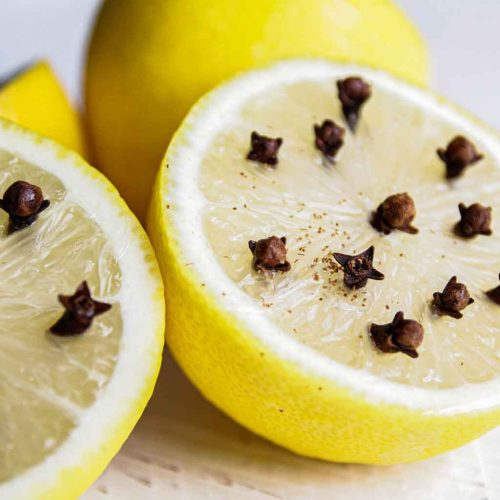
The Repellent Properties of Cloves and Citrus
Lemons and cloves, a dynamic duo in the quest to repel mosquitoes, capitalize on the insects’ aversion to their fragrance.
By cutting a lemon in half and embedding cloves into both parts, you create a potent mosquito deterrent for home.
Placing these clove-infused lemons around the house acts as a natural and safe remedy for mosquito control. This method not only tackles mosquitoes but also adds a pleasant aroma to your living spaces.
IV. Garlic Spray: A Pungent Solution to Repel Mosquitoes

Sulphur in Garlic as a Natural Mosquito Deterrent
Garlic, known for its distinct aroma and various health benefits, is also a powerful mosquito repellent. The sulphur content in garlic is unappealing to mosquitoes, making it an effective tool in keeping them at bay.
Creating a garlic spray involves crushing a few garlic cloves, boiling them in water, and then using a spray bottle to disperse the solution around your home, including rooms and garages. This natural remedy not only eliminates mosquitoes but does so without leaving a lasting, unpleasant odor.
V. Essential Oils: Lavender and Tea Tree

The Repellent Qualities of Lavender and Tea Tree Oils
Harnessing the power of essential oils is a popular and aromatic way to combat mosquitoes. Lavender oil and tea tree oil, with their naturally strong scents, act as efficient mosquito repellents.
The unmistakable aroma of these oils deters mosquitoes, making them a valuable asset in your battle against these pesky insects.
Beyond spraying these oils around your home, applying them to your clothes and even your body provides an added layer of protection, creating a pleasant and fragrant shield against mosquito bites.
VI. Attracting Birds: Nature's Mosquito Control
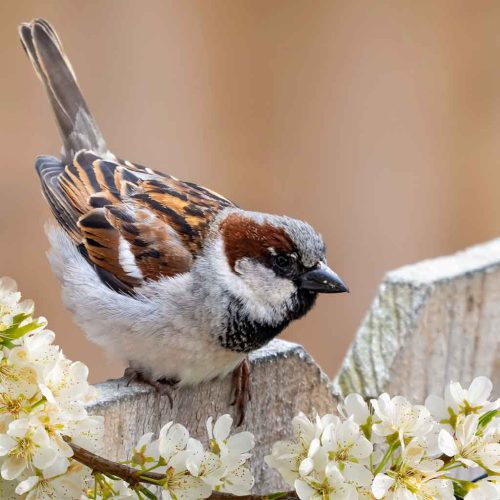
Utilizing Birds to Control Mosquito Population
Nature provides its own solution to the mosquito problem: birds. Many birds are natural predators of mosquitoes, and attracting them to your surroundings can significantly reduce mosquito populations.
By adding bird feeders to your porch or balcony, you invite feathered friends who will gladly make a meal out of mosquitoes.
This eco-friendly approach not only keeps mosquitoes at bay but also contributes to the local ecosystem by fostering a balance between predators and prey.
VII. Mosquito-Repellent Plants: Basil, Lemongrass, and More
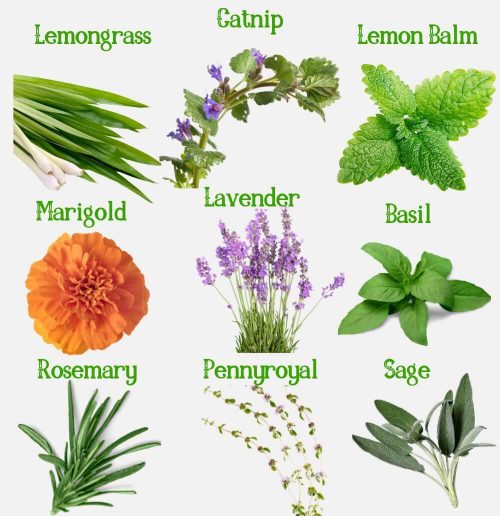
Poisonous Properties of Basil for Mosquito Larvae
Plants can serve as a formidable line of defense against mosquitoes, with some possessing natural properties that repel or harm these insects.
Basil, often considered a culinary herb, goes beyond flavoring your dishes; its leaves are poisonous to mosquito larvae, effectively halting their growth.
Placing a basil plant or two at the entry points of your home not only adds greenery but also acts as a strategic barrier against mosquitoes. Additionally, basil leaves can be used to create a homemade mosquito-repellent spray, offering a double-layered defense.
Lemongrass and Citronella as Natural Insect Repellents
Citronella and lemongrass, known for their pleasant scents, are widely recognized as natural insect repellents. The compound citronella found in these plants helps mask the scents of carbon dioxide and lactic acid, which mosquitoes use to locate their prey.
Planting citronella and lemongrass around your home creates a fragrant barrier that confuses and repels mosquitoes. Embracing these natural remedies not only enhances your outdoor spaces but also contributes to a mosquito-free living environment.
VIII. Apple Cider Vinegar: A Potent Homemade Mosquito Repellent

Creating a Simple Apple Cider Vinegar Repellent
Apple cider vinegar, a versatile household ingredient, can be transformed into a potent mosquito repellent. Blending equal proportions of apple cider vinegar and witch hazel in a small bowl, along with a few drops of essential oils like eucalyptus or citronella, results in an effective repellent.
The mixture is then transferred to a spray bottle, providing a convenient way to apply the solution. Regular use of this homemade repellent offers a natural and chemical-free approach to keeping mosquitoes at bay, ensuring a more comfortable living space.
IX. Eliminating Standing Water: A Preventative Measure
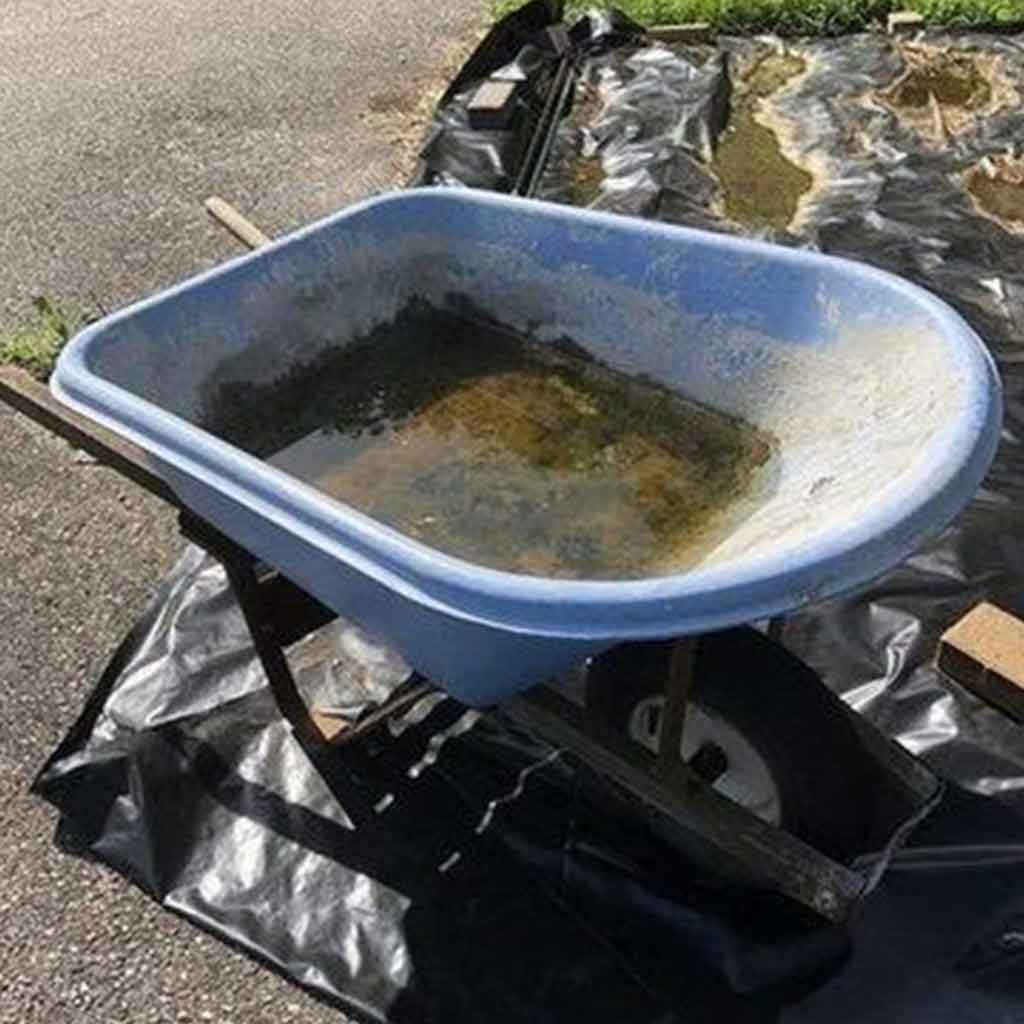
Mosquito Breeding Grounds in Standing Water
Preventing mosquito breeding is a crucial aspect of mosquito control. Mosquitoes prefer laying their eggs in stagnant water, making any standing water around your property a potential breeding ground.
A thorough inspection of your surroundings, including potted plants, flower vases, and other items that might collect rainwater, is essential. By eliminating these standing water sources, you disrupt the mosquito life cycle, reducing the overall population and minimizing the likelihood of mosquito-borne diseases.
X. Using Alcohol: A Surprising Mosquito Repellent

How Alcohol Deters Mosquitoes
If your bar is stocked with beer or other alcoholic beverages, you have an unexpected ally in the fight against mosquitoes.
Mosquitoes dislike the smell of alcohol, making it an excellent approach to keep them away from your home. By placing the liquor of choice in a glass or dish and strategically positioning it, you create a barrier that mosquitoes find unappealing.
This unconventional yet effective method adds an extra layer to your mosquito control strategy, using common household items to repel these bothersome insects.
XI. Frequently Asked Questions (FAQ'S)
- Q: What are some natural ways to repel mosquitoes indoors?A: You can use essential oils like citronella, eucalyptus, or lavender, place mosquito-repelling plants, and use screens on doors and windows.
- Q: How effective are mosquito nets in preventing mosquito bites at home?A: Mosquito nets are highly effective. Make sure they are properly installed and don’t have any openings to keep mosquitoes out.
- Q: Can I use DIY mosquito repellents at home?A: Yes, you can create repellents using ingredients like lemon, garlic, or neem oil. Mixing these with water and spraying them around can help repel mosquitoes.
- Q: Do mosquitoes have specific breeding grounds inside the house?A: Yes, mosquitoes breed in stagnant water. Eliminate standing water in flower pots, trays, and other containers to prevent breeding.
- Q: How can I make my bedroom mosquito-free naturally?A: Use mosquito nets, keep windows closed during peak mosquito activity, and use essential oil diffusers with repellent oils in the bedroom.
- Q: Are there specific plants that repel mosquitoes indoors?A: Yes, plants like citronella, basil, and mint can naturally repel mosquitoes. Keep them indoors to create a mosquito-free environment.
- Q: What role do natural predators play in controlling mosquitoes at home?A: Natural predators like dragonflies and birds feed on mosquitoes. Encouraging these predators can help control mosquito populations.
- Q: How often should I change the water in flower vases to prevent mosquito breeding?A: Change the water in vases at least once a week to prevent mosquito larvae from developing. Scrub the vase to remove any eggs or larvae.
- Q: Can certain lighting choices reduce mosquito attraction indoors?A: Yes, mosquitoes are less attracted to yellow or LED lights. Opt for these lighting options to minimize mosquito activity indoors.
- Q: Are there specific cleaning practices that can help reduce mosquitoes at home?A: Regularly clean and maintain gutters, as clogged gutters can become breeding grounds. Keep the home clean, eliminating places where mosquitoes may hide or breed.
- Q: Is using mosquito bats an effective method for eliminating mosquitoes at home?A: Yes, mosquito bats can be effective in eliminating mosquitoes at home by providing a convenient and immediate means of insect control. However, their effectiveness may vary depending on factors such as user technique and the specific environment.
XII. Conclusion
Recap of Natural Mosquito Control Methods
In conclusion, the battle against mosquitoes can be won without resorting to harmful chemicals. Embracing natural remedies, such as camphor, coffee grounds, cloves, and essential oils, provides an effective and safe approach to creating a mosquito-free home.
Additionally, incorporating plants, attracting birds, and using household items like garlic and alcohol contribute to a holistic strategy for mosquito control.
Encouraging a Mosquito-Free Home
By implementing these natural tips and tricks, you not only protect your family from the nuisance of mosquito bites but also contribute to a healthier living environment.
Mosquito-borne diseases are a serious concern, and adopting these natural methods ensures that you can enjoy the comforts of your home without compromising on safety.
Other Mosquito Topics You May Be Interested In
[sc name="allmosquitotopics"][/sc]
